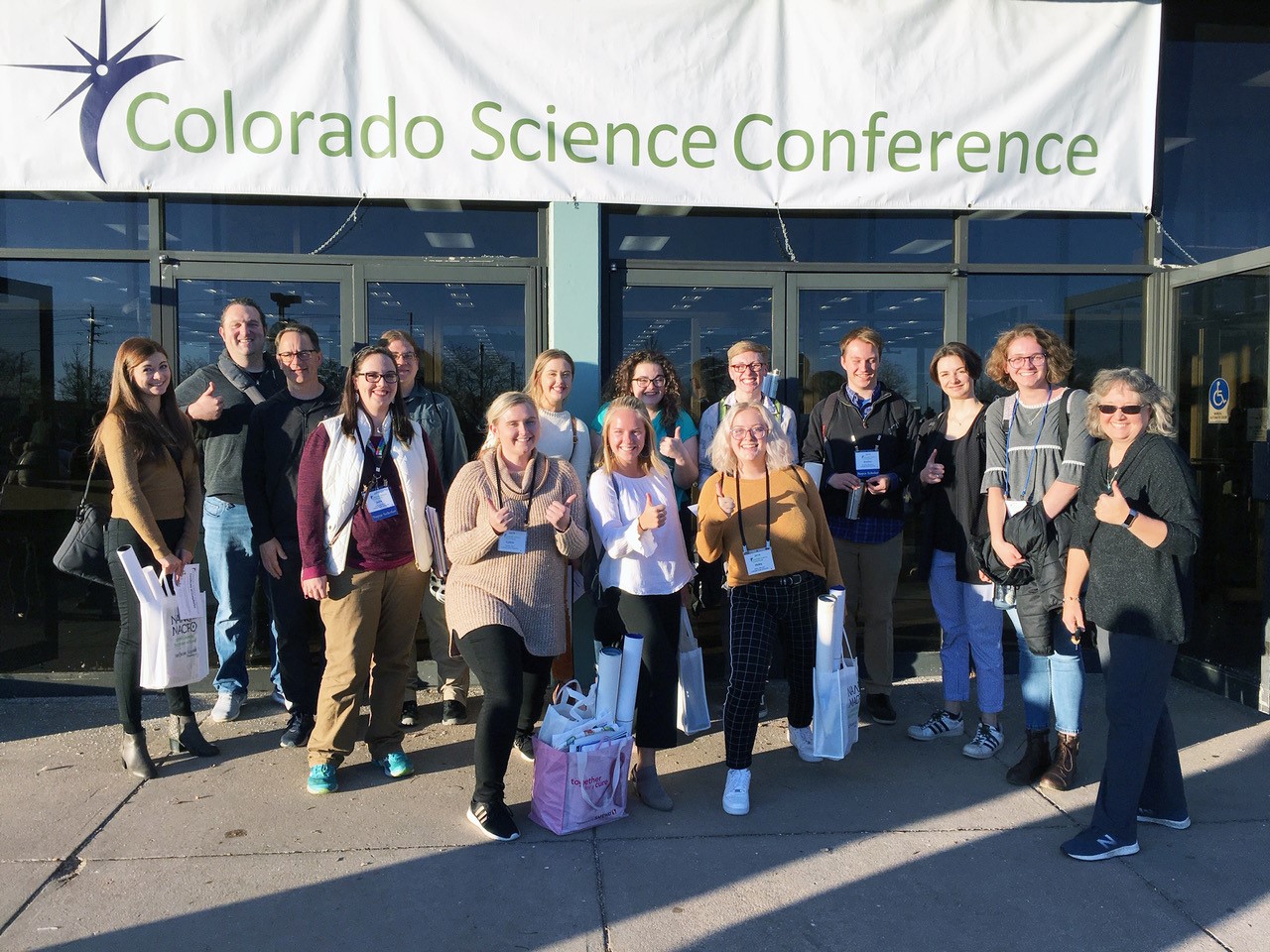
Haley Wartell is passionate about science education. As a sophomore majoring in natural sciences at Colorado State University, Wartell is becoming an expert on a wide range of topics while also earning her teacher’s license. In early November, Wartell and fellow science education students attended the Colorado Science Conference where she met others who share her passion.
“I have never been surrounded by so many people that are so passionate about teaching and want to learn how to become better teachers,” said Wartell. “I really enjoyed just being able to geek out about so many different science teaching tools and resources and have the people that I was with feel the same.”
Students majoring in natural sciences in the College of Natural Sciences like Wartell can earn a bachelor’s of science degree in one of four areas of concentration focused on science education: biology education, chemistry education, geology education, and physics education. Students in this major can earn a teacher’s license through the Center for Educator Preparation while completing their B.S. degree.
The Colorado Science Conference, held in Denver Nov. 8, brought together science educators from across the state. Emily Bergmann, who is also majoring in natural sciences and pursuing a teacher’s license at CSU, said this conference allowed her to see how the concepts she learns in class apply to real-world teaching.
“There is only so much one can do in the classroom before you need to go do hands-on things, or hear from teachers who are practicing,” said Bergmann. “It allows for the most innovative things to be shown and on display, and hear from practicing teachers how they implement them in their classroom.”
Bergmann also noted that learning about failures was just as important as learning about successes.
“It is nice to hear how innovative things have also failed in the classroom,” she said. “Often we are only given the ‘good’ and not how the methods have failed. I think the most important part of the conference was talking to teachers who have experienced it in the classroom.”
Professional development
Conferences like these are critical for students, according to Courtney Butler, who serves as the academic advisor for natural sciences students. “It is very important that our preservice science teachers begin thinking of themselves as professionals early on and to understand the importance of professional development.”
The College of Natural Sciences Education and Outreach Center (CNS-EOC) supported the students in attending this conference, with both conference registration funding and transportation as well as mentorship. Along with Butler, CNS-EOC Director Andrew Warnock and Teachers-in-Residence Mike Viney and Vicky Jordan joined the students at the conference. They talked in-depth with them about the sessions they attended and helped them to understand how that content can translate into the classroom.
“One of the sessions was presented entirely in German. This illustrated to participants some of the frustrations that English language learners face,” said Warnock. “This left an impression on our students. They brainstormed ways they could make their future classrooms more effective and inclusive on our drive back to CSU.”
For Wartell, this conference invigorated her passion for science education. “I just love hearing from experienced teachers and people that are passionate about this profession. It really solidifies my choice in my education right now and my future.”